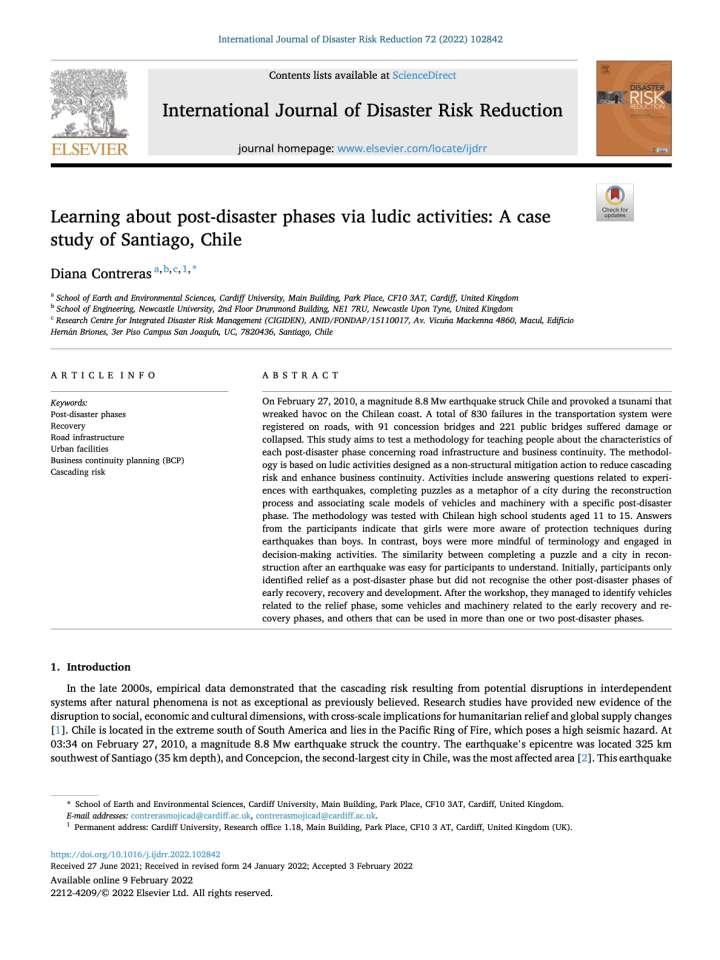Learning about post-disaster phases via ludic activities: A case study of Santiago, Chile
This study aims to test a methodology for teaching people about the characteristics of each post-disaster phase concerning road infrastructure and business continuity. On February 27, 2010, a magnitude 8.8 Mw earthquake struck Chile and provoked a tsunami that wreaked havoc on the Chilean coast. A total of 830 failures in the transportation system were registered on roads, with 91 concession bridges and 221 public bridges suffered damage or collapsed. The methodology is based on ludic activities designed as a non-structural mitigation action to reduce cascading risk and enhance business continuity. Activities include answering questions related to experiences with earthquakes, completing puzzles as a metaphor of a city during the reconstruction process and associating scale models of vehicles and machinery with a specific post-disaster phase. The methodology was tested with Chilean high school students aged 11 to 15.
Answers from the participants indicate that girls were more aware of protection techniques during earthquakes than boys. In contrast, boys were more mindful of terminology and engaged in decision-making activities. The similarity between completing a puzzle and a city in reconstruction after an earthquake was easy for participants to understand. Initially, participants only identified relief as a post-disaster phase but did not recognise the other post-disaster phases of early recovery, recovery and development. After the workshop, they managed to identify vehicles related to the relief phase, some vehicles and machinery related to the early recovery and recovery phases, and others that can be used in more than one or two post-disaster phases.
Explore further

